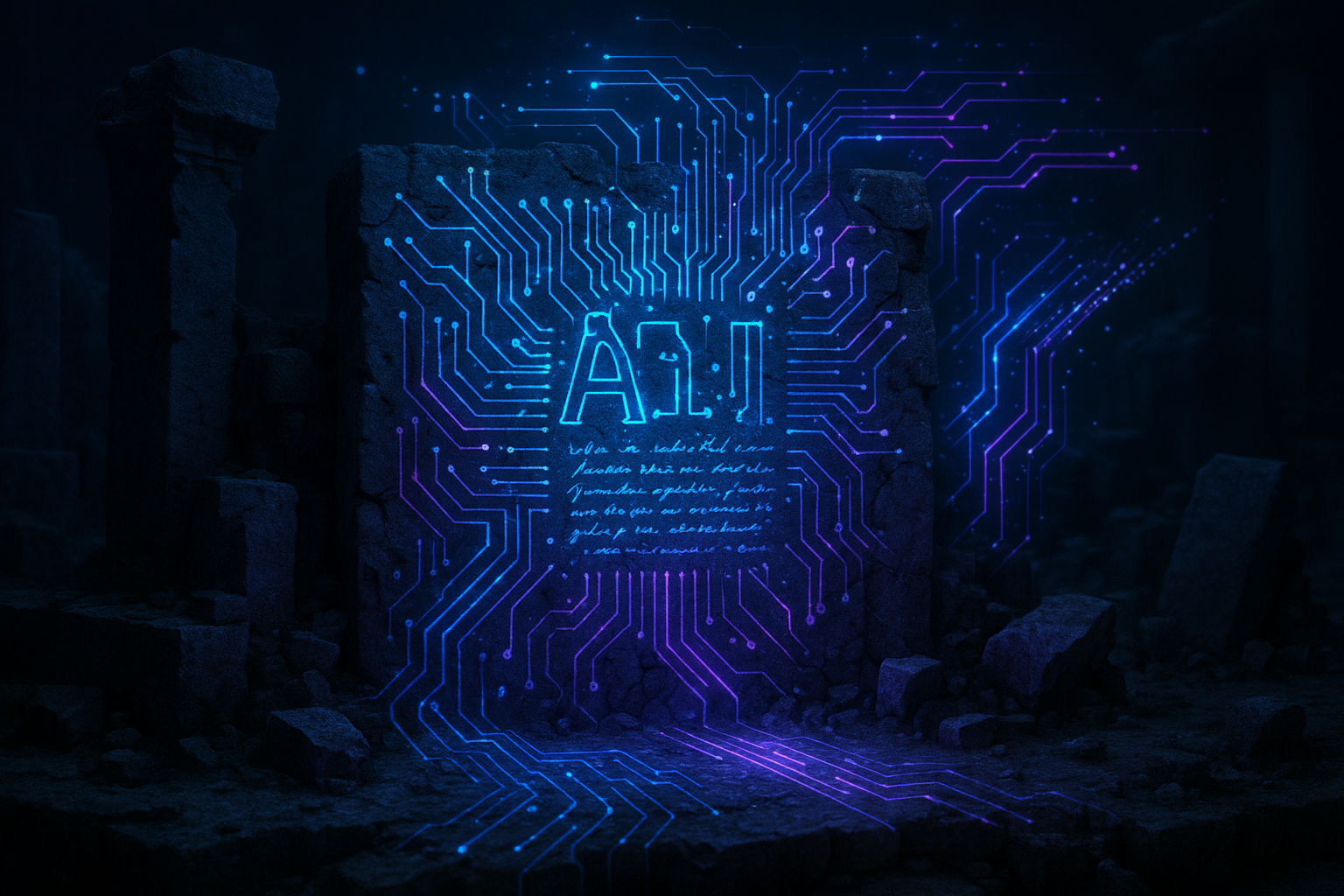Google's New AI is Resurrecting Lost Voices from the Roman Empire, and Historians are Stunned

For centuries, the secrets of the Roman Empire have been locked away in stone—shattered, weathered, and incomplete. Piecing together these ancient puzzles has been the painstaking work of historians, often relying on guesswork to fill the gaps left by time. But now, a revolutionary new tool is set to change everything.
Enter Aeneas: The Digital Archaeologist
Google DeepMind has unveiled Aeneas, a groundbreaking artificial intelligence designed to act as a digital collaborator for historians. This sophisticated system is breathing new life into damaged Latin inscriptions, decoding their mysteries with incredible speed and accuracy. By analyzing a scanned image of an artifact alongside any partial text, Aeneas can propose the inscription's likely date and geographical origin, and even suggest what the missing words might be.
Imagine a historian finds a fragmented marble slab that reads '...us populusque Romanus.' Aeneas can analyze this fragment and instantly suggest the preceding word is almost certainly 'Senat,' resurrecting the iconic phrase 'Senatus populusque Romanus'—"The Senate and the people of Rome."
A Library of an Empire
This technology, an evolution of a previous AI named Ithaca, goes far beyond simple guesswork. Aeneas's true power lies in its massive memory. The AI was trained on a colossal database of nearly 150,000 cataloged Latin inscriptions, sourced from every corner of the former empire, from the misty frontiers of Britain to the arid landscapes of modern-day Iraq.
When presented with a new fragment, Aeneas cross-references it with this vast library. It searches for parallels—other known engravings that feature similar words, phrases, or stylistic conventions. This comparative analysis allows it to not only restore text but also to place the artifact within a rich historical context, revealing connections that might have remained invisible to the human eye.
Remarkably, Aeneas's deep neural network accomplishes this with a training set that, while invaluable to historians, is tiny compared to the data used for many other large-scale AIs. This powerful tool is poised to accelerate our understanding of the ancient world, giving a new voice to the silent stones of a long-vanished empire and unlocking history one inscription at a time.


